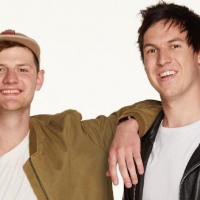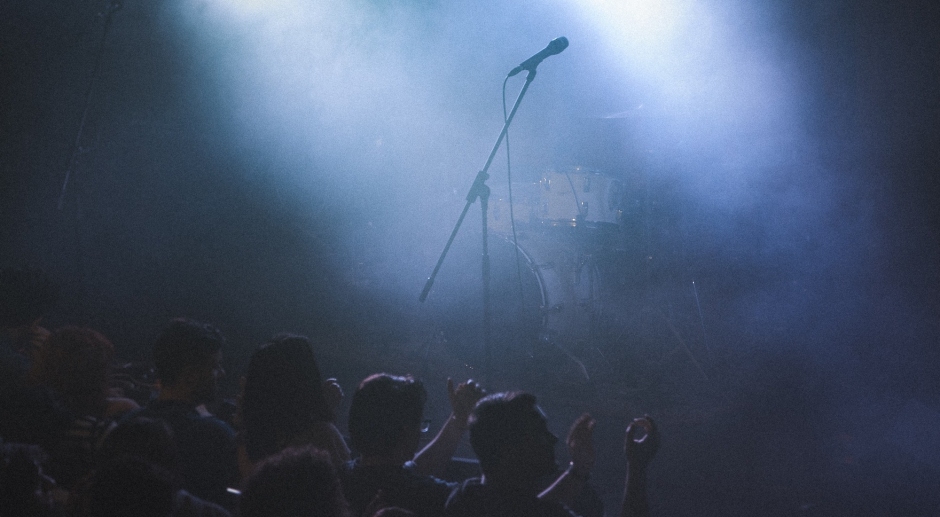 Ben & Liam, Mental Health & The Erosion Of Empathy On Social MediaLet’s use R U OK day as a good chance to reflect on how we conduct ourselves online.
Ben & Liam, Mental Health & The Erosion Of Empathy On Social MediaLet’s use R U OK day as a good chance to reflect on how we conduct ourselves online.

Mental Health & Music: A Close Look At One Of Our Industry's Biggest Issues
The world's music scene is in trouble, but not because of reduced ticket sales, funding cuts or piracy.
Header image by Aaron Webber.
This year, the world’s rock music scene lost two of its most prominent names to suicide – Linkin Park frontman Chester Bennington and Soundgarden frontman Chris Cornell. Immediately following both deaths, my Facebook and Twitter feeds were lit up with paragraphs on improving mental health for musicians and others in the music industry and that massive overhauls were needed to ensure our arts remain mentally healthy. However, in just a matter of days, the discussion had dropped to practically zero.
In Australia, an estimated 45% of our population experience at least one mental health condition in their lifetime, and that around three million Australians experience depression or anxiety. These are disturbing statistics on their own, but in the music industry and its less than favourable conditions this figure is increased dramatically. “We’re talking about a very vulnerable group of people who are in a very high stress and anxious environment – and it’s tough to survive long term,” said Shihad drummer Tom Larkin on The Project back in May, discussing mental health in the music industry after the death of Cornell. “The environment of the music industry is, in fact, a brutal one – brutal in terms of the kinds of psychological climate that it can have, the permissiveness around drug and alcohol use, and economically.”
In 2016, English organisation Help Musicians UK found that 71% of musicians have experienced anxiety or panic attacks at one stage of their career and that 65% believed to have depression. Let’s say that again. An estimated three million Australians are currently experiencing depression or anxiety – 12.5% of Australians if we use the results from the most recent census. Compare this to the 65% of musicians who have depression. While there is obviously a much larger population of people not involved with music than there is of people who make music or are involved with the scene, this high percentage of musicians with mental health conditions is incredibly devastating. In Australia, a recent study found that 25% of musicians and over 50% of industry workers have attempted or considered suicide and that on average, musicians live far shorter lives than our non-musician counterparts. Additionally, the study discovered that your average musician earns over $30,000 less than the average Australian salary.
For musicians, being thrown into the limelight can take its toll quickly if you’re unaccustomed to the extra attention. Having your every move analysed 24/7 by the public and the media leaves little room for faults (and when errors occur, they’re often highly-publicised and widely-spread) and constant touring, promotion and recording schedules can leave artists mentally weak and vulnerable if they don’t take care of themselves. In 2015, Florence & The Machine frontwoman Florence Welch openly discussed her battle with depression and alcoholism prior to the release of their most recent record How Big, How Blue, How Beautiful and on a more localised scale, Australian indie two-piece Slum Sociable pushed their debut album release date back due to mental health problems in a personal Facebook post last week. Florence Welch and Slum Sociable are just the tip of the iceberg regarding open and intimate discussions about mental health in music – in fact, it sometimes feels like every week there’s a new name standing up and talking about how mental health has impacted them recently.
"That is the reality of depression - it affects people's work, families and lives every day and in being someone who struggles with it, all I want is to be able to help those who don't feel like know how to help themselves by opening up about my own battle." - Slum Sociable's Miller Upchurch
“The classic image of a touring musician would seem counterintuitive to all we know about well-being,” said The Mental Health Foundation’s Isabella Goldie to The Guardian in 2015. “Drinking in moderation, avoiding drugs, getting sufficient amounts of sleep, and having a support base of close friends and family nearby. These are the bonds that help keep you grounded... It’s no surprise that some musicians struggle.” While the 'sex, drugs and rock'n'roll' lifestyle documented by leading rock stars is possibly out-dated in today’s industry, the lack of constant support from nearby close friends and family while touring is a genuine threat to the mental health of musicians, something that The Vaccines’ Justin Young agrees with. “Touring institutionalises you and it can make normal life feel mundane,” he said. “You end up with a lot of expectations from life that aren’t always fulfilled in everyday tasks like going down the shops for a pint of milk or even going for dinner with friends. It’s hard to replace all that adrenaline.”
While people unfamiliar with the music industry would suggest that artists should cut touring to preserve mental health, it's not really a viable option financially. With online streaming taking over physical record sales in recent years, musicians are being forced into heavy touring to alleviate these losses in record sales, despite the loneliness touring can bring (and the added pressure of performance anxiety – something that everyone from Adele to Mariah Carey has spoken about in the past).
Additionally, it’s no secret that the music industry – and many other creative industries – have glamorised mental health conditions and used it as a major selling point. In March, British music mag NME featured UK grime star Stormzy on their front cover with the caption “Depression: It’s Time to Talk.” Stormzy, who didn’t authorise the use of the image, discussed his struggles just before the magazine’s issue was released and accused NME of using the topic and his image as a selling point. “We've had a good relationship before this, why do you think it is kool [sic] to use my me as a poster boy for such a sensitive issue without permission?” he wrote on Twitter. “The reason I'm so angry is because NME have been begging me to be on their cover. I have refused. They then see me talking about my journey with depression and they think ‘yeah - we've got him now.’” Likewise, the Netflix-produced TV drama 13 Reasons Why was the topic of many discussions surrounding the use of mental health as a selling point. There’s also the problem of click-reliant tabloids and the members of the public who love to see musicians struggle. Those who attacked Britney Spears for her much-publicised emotional breakdown in 2007 have since gone on to attack artists like Sinead O’Connor and Kanye West for their recent public episodes.
However, the biggest problem with the music industry’s mental health condition isn’t the touring, financial strain or its status as a selling point. Instead, it’s that there is nothing available to help musicians, managers, publicists, journalists or anyone else in the industry with their problems. While Australian mental health organisations including Beyond Blue and Headspace are incredibly crucial for much of the public, the triggering points for mental health conditions like depression and anxiety are far different than your standard person seeking health. Likewise, while many industries pride themselves for their mental health coverage and programs, the music industry – up until recently – had very little.
In the same Help Musicians UK study, 55% of musicians believed there was a severe lack of mental health services for musicians and music industry workers and that approximately 45% of musicians would be willing to see a dedicated mental health counselling service for musicians. A similar service which aids music managers and music industry workers with maintaining a robust emotional health and promoting a healthy well-being in their clients would also be useful, admits many industry representatives. “There's still a massive stigma for managers or other people in the industry to not talk about their issues – or know how to handle them,” said experienced music manager Ellie Giles in a guest essay published on Noisey this year. “People can be ineffective at creating boundaries. They think they need to be on-call at every moment, which is completely fake and false. What they actually need to do is choose to switch off, but most people won't because they're scared of losing a client, of showing weakness and of being vulnerable.”
"There's still a massive stigma for managers or other people in the industry to not talk about their issues - or know how to handle them." - Ellie Giles
An increase in mental health organisations dedicated to musicians and others in the music industry may prevent losses like Bennington and Cornell in the future and losses like these have encouraged people to speak up on their issues. “It's only recently that I've had calls from people at major labels, asking what I'd recommend they do when their client is in a similar situation,” says Giles in the same essay. “I guess that's one good thing about the conversation around mental health opening up: If you're strong in yourself and talking to people, anything you come across is going to bounce off you.” While it may not be the same as expensive and in-demand psychiatric treatment, openly talking about your experiences with depression and anxiety as a musician encourages others to do the same, removing the stigmatisation of mental health problems in the industry and allowing others who are suffering to identify that they’re not alone.
“The most important thing about being a musician is working with other musicians and having community and not being in isolation,” Melbourne musician and Milk Records co-owner Jen Cloher told triple j last year. “If you are going through a rough time, like an album tanks or a tour doesn't come off or you go into debt... you can turn to another musician, you can call someone up, you can call a friend and talk about it. I think if you don't create that community around you it's a much harder journey.”
In Australia, organisations including Entertainment Assist are striving to promote the enhancement of mental health and wellbeing in the Australian entertainment industry. On their website, Entertainment Assist mentions that they wish to create an industry where “industry workers are educated to be aware of their own mental wellbeing, educated to support their peers around mental health, and actively support the mental health and wellbeing of employees.” They also share a variety of sources to seek when in need of support. Similarly, Support Act Australia is an active charitable organisation which helps Australian musicians and music workers facing mental health problems or any other hardships. Although a British company, Help Musicians offer a range of practical ideas to support musicians no matter what their status and many of these can be applied back here in Australia.
Organisations like Entertainment Assist and publically sharing your problems with mental health (and you overcame them) are crucial in destigmatising mental health the music industry. Talk to your friends and colleagues and ask them if they’re OK – if they say no, allow them to explain why and attempt to point them in the right directions to find help.
Let’s keep our music industry alive – literally.
Note: Just before publication, Support Act Australia announced plans for a new mental health helpline for musicians and those working in the music industry. Stay tuned for more information to come later today.

Need to talk to someone? Call Lifeline on 13 11 14, Kids Helpline on 1800 551 800, MensLine Australia on 1300 789 978, Suicide Call Back Service on 1300 659 467, Beyond Blue on 1300 22 46 36, Headspace on 1800 650 890 or QLife – for LGBT+ persons – on 1800 184 527.
For advice and support networks for musicians and workers in the music industry, head to Entertainment Assist, Support Act Australia, Help Musicians UK or MMF and Music Support’s Music Managers Guide to Mental Health.
 Ben & Liam, Mental Health & The Erosion Of Empathy On Social MediaLet’s use R U OK day as a good chance to reflect on how we conduct ourselves online.
Ben & Liam, Mental Health & The Erosion Of Empathy On Social MediaLet’s use R U OK day as a good chance to reflect on how we conduct ourselves online.
 A Song About Getting A Vagina, And All The Shit That Comes With ItLionizer's Bailey Lions talks us through a track from their debut LP, written post-Sexual Reassignment Surgery.
A Song About Getting A Vagina, And All The Shit That Comes With ItLionizer's Bailey Lions talks us through a track from their debut LP, written post-Sexual Reassignment Surgery.